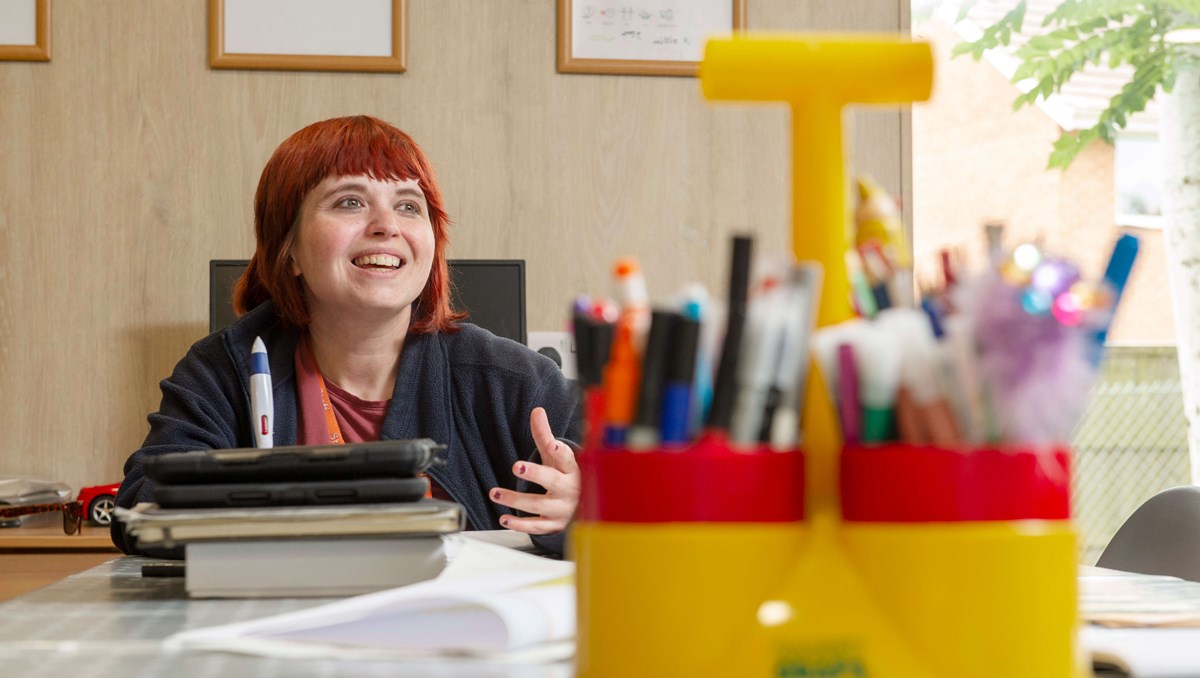Retain your joy and stay well: advice for early career teachers
A third of new teachers quit after five years. What can you do to stay mentally well and retain your joy in teaching?
Articles / 4 mins read

Just as the pupils in your care grow throughout the years, so do you. You will experience highs and lows in your careers. And each event will shape you as an educator. You may already notice a change since you started in your career?
You may face periods of challenge in your role, so it is important to recognise these experiences are valid. We are not encouraging you to avoid or supress difficult feelings or frustrations. But finding strategies, such as the ones discussed below, can help support your mental health and you retain the joy in your role.
Set wellbeing non-negotiables
Something we often invite teachers to think about is, do you set yourself wellbeing non-negotiables?
These are firm and immovable rules that you keep for yourself, in order to prioritise your wellbeing each day or week. Some examples we’ve heard from teachers and education staff include:
- I prioritise leaving school when the bell goes once a week, without fail. It doesn’t matter what’s left to do
- I go to the gym twice a week. If I don’t I can become more stressed.
- I have a pre-bedtime ritual. I have to stick to it or I can’t sleep!
- I do not check e-mails after 6pm. My mind is whirring well into the night if I do
- I batch cook every Sunday, so I know I have meals sorted through-out the week. It just takes the pressure off
They all look quite different, and are very specific to each person. Is there one thing you can stick to each week, to create some space, and help yourself to feel well?
We’re conscious that having non-negotiables can involve setting boundaries, which can be challenging. Take a look at ‘Saying no: advice for setting boundaries’ for further tips and support.
Get comfortable saying no!
Many teachers are uncomfortable saying no. Often it’s due to a well-meaning fear of letting people down. Our advice is: get comfortable saying no! It’s an important tool for self-care in the workplace. This can mean leaning into uncomfortable conversations.
Here are some helpful phrases to have in your pocket when you need to say no:
- Thank you for considering me for this. Let me check my diary before I commit
- I can’t realistically commit to this without letting go of some other tasks. Let me discuss with my line manager
- That time frame won’t be possible for me due to other commitments
- My plate is full at the moment, but thank you for thinking of me
- I'm going to take time to fully consider this. I will respond to you when I have an update.
- I have some concerns. Can we find some time to talk this through?
- Has anyone else been considered for this

Foster healthy relationships
When was the last time you spent quality time with your family and friends? The relationships we have, both in the workplace and at home can have a huge impact on our mental wellbeing. Often social health is the first casualty during difficult times. It’s important not to neglect our personal relationships due to work wherever possible, as these can be a great source of strength. Never forget you may be replaceable at work, but never to your friends or family.
Having good work relationships has been proven to make our jobs more enjoyable. In fact, according to research by Gallup, people who have a best friend at work are up to seven times more likely to be engaged in their roles. Seligman also noted that happiness couldn’t be achieved without social relationships, and while social relationships do not guarantee happiness, happiness does not often occur without them. Colleagues can also support each other with the emotional toll of working in a high pressure environment.
Watch ‘Supporting each other: how staff can help each other with mental health and wellbeing’ for strategies to enable and encourage healthy working relationships.
Prioritise rest and recuperation
It may feel counterintuitive but rest is an important aspect of productivity, It is also essential in beating stress and burnout. Taking breaks ensures that you are making the most of your time. Staying an extra hour to mark papers or working through your lunch break is not necessarily the best use of time if you are exhausted.
You could start by setting smaller goals to incorporate more rest into your day. Don’t try to change everything at once.
Some example goals include:
- Set a time to finish each day during the term. This could give you time to have dinner with family, exercise or meet friends.
- Set free time to rest properly on weekends and week nights.
- Sign up to a regular activity, such as a class or club. Connecting with yourself and your passions can help avoid burnout.
- Take your entire lunch break whenever possible
- Set time to move your body. This could be vigorous exercise or something gentle like a walk, yoga or stretching
- Separate home and work i.e. keep marking at school if possible
Watch ‘Boundaries, rest and letting go: how to give yourself permission’ which shows how teachers can take ownership of their boundaries, make time for rest and how to keep professional and personal separate.
Seek support when you need it
Remember it is important to reach out for support if you are struggling – you are only human and everyone struggles sometimes. All teachers and education staff can call our free and confidential helpline 24/7. You don’t need to be in crisis to call. When you call you’ll talk to a qualified counsellor for immediate, confidential emotional support: 08000 562 561.
Free webinar: An Early Career Teacher Survival Guide
Join this hour-long webinar on 9 October at 4pm. It will feature useful tips and advice from experienced teaching professionals, and our very own Jess Hannan, to help early career teachers (ECTs) navigate the challenges of starting out in the profession. Sign up here.
Advice from early career teachers
Two early career teachers share their experiences of managing their mental health and offer helpful tips and advice to others starting out in teaching. Watch their videos below.
Source
E. Seligman, Flourish: A visionary new understanding of happiness and well-being. Atria Paperback, 2012.


Don’t wait for a crisis to call.
We’ll offer you immediate, emotional support.
08000 562 561

Sign up to our newsletter for the latest mental heath and wellbeing resources, news and events straight to your inbox.





















